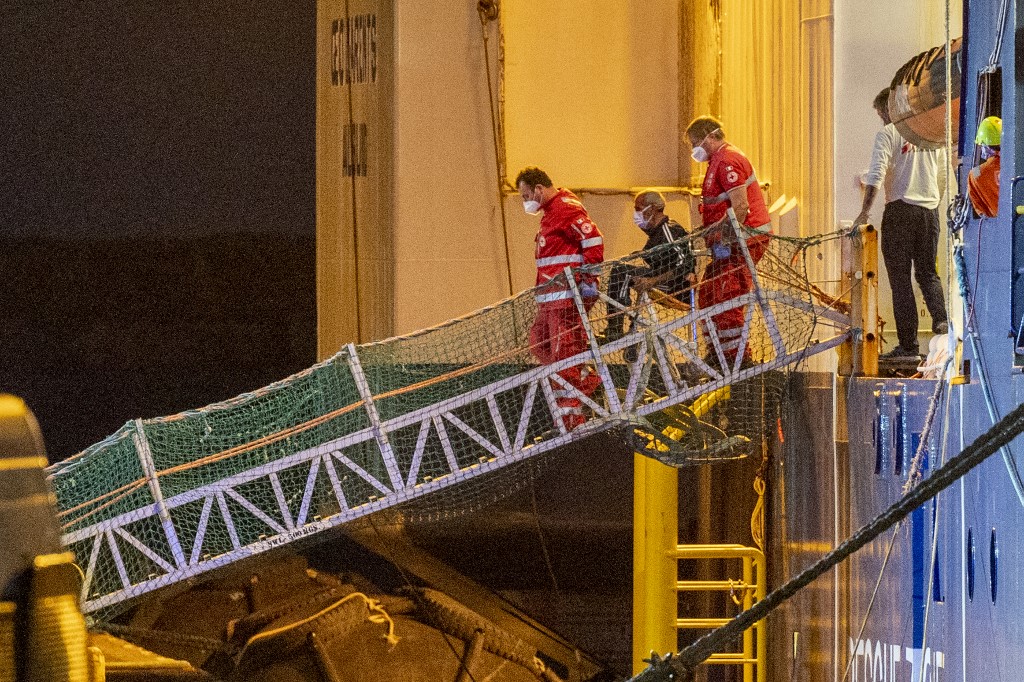Brussels seeks to modernize its complex and outdated budget rules
Brussels (AFP) – On Wednesday, the European Commission is set to unveil its plan to reform the EU’s old budget rules to enable massive investments and strengthen the reliability of public accounts.
“It is time to move forward. If we don’t do it now, when will we do it?” asked European Commissioner for Economy Paolo Gentiloni.
These rules, gathered in the Stability and Growth Pact, were suspended in early 2020 to avoid a collapse of the European economy affected by the Covid-19 pandemic. Faced with a historic recession, deficits were expected.
Now that the storm has passed, and despite the war in Ukraine, the Pact is to be reactivated at the end of 2023, even though the crisis has caused the debt levels of the most fragile countries to explode and the Pact is no longer applicable as it stands.
The Stability Pact is an instrument adopted by the countries of the euro area in 1997, in preparation for the introduction of the single currency on 1 January 1999. It is a response to Germany’s concern that member countries would pursue lax budgetary policies, and thus imposes the objective of balanced accounts. (November 7, 2022)
Frail people disembark from NGO ships, clash over who stays

Catania (ANSA) – 144 people left the rescue ship Humanity 1, but 35 remained on board. And for 100 fragile passengers from the lifeboat Geo Barents, disembarkation in Catania has begun as well. But there is a clash over those who cannot disembark, as stipulated by the government’s decree on migration flows. The commander of Humanity 1, Joachim Ebeling, said that they have been “ordered to leave the port of Catania. But I can’t, we must find a solution here” because “it would be against the law to leave with the survivors, as my lawyer explained to me.”
For Doctors Without Borders, “a rescue operation can only be considered finished once all the survivors have disembarked in a safe place.” The NGO states that “selective and partial disembarkation, such as proposed by the Italian authorities, is not to be considered legal according to the conventions of maritime law.” They recall that “the government should take all necessary measures to ensure that the survivors remain on board for as short a time as possible, according to the Guidelines on the Treatment of Persons Rescued at Sea.” The first passengers to disembark from the Geo Barents were minors and young children: 56 unaccompanied minors and 3 women have disembarked already.
While attending an event in Venice, Interior Minister Matteo Piantedosi was challenged by some members of the NGO Mediterranea. The Democratic Party is calling for the head of the ministry to report back to parliament. A step towards an agreement on the redistribution of migrants landed in Italy could come from France, which is finalizing the modalities for the reception of those migrants. This is a confirmation of the willingness expressed by Minister Gerald Darmanin: “We have told Italy, and we say this with Germany, that if that humanitarian vessel (Ocean Viking) will be welcomed by Italy, we will also host part of the migrants, of women and children, so that Italy isn’t burdened on its own by this arrival of migrants.”
Deputy Premier and Infrastructure Minister Matteo Salvini said Monday that it was time to stop “organized trips” for migrants across the Mediterranean as a stand-off continued over people saved at sea by NGO-run search-and-rescue ships. “These are organized trips,” said Salvini, who imposed a closed-ports policy on NGO-run ships when was interior minister between 2018 and 2019 in the first government of ex-premier Giuseppe Conte.
Meanwhile, Catania’s Public Prosecutor’s Office has opened an investigation into the possible presence of traffickers on the Humanity 1 and Geo Barents ships. The mobile squad’s investigation aims to identify possible crew members of the boats rescued by NGOs in the Mediterranean. (November 6)
European police action against smuggling networks on the Balkan route leads to 382 arrests

Brussels (Belga) – Police, customs, immigration services and border security agencies, among others, were deployed in the EMPACT coordinated action days, which took place from Wednesday 26 to Saturday 29 October. The focus was primarily on tightening controls at the EU’s external borders, especially in the Balkans and elsewhere in south-eastern Europe. Other countries contributed to the operation through intelligence or have carried out actions at a national level.
Of the 382 people arrested, 159 are suspected of being involved in human trafficking. There are also 112 people suspected of drug trafficking and 38 of arms trafficking. In addition, 106 firearms, 304 kilograms of heroin and 147 kg of cannabis were seized. 130 new investigations were launched based on the arrests and the evidence obtained.
Nearly 16,000 agents participated in the multi-day campaign. Together, they have checked more than 30,000 vehicles, nearly 75,000 people and more than 2,000 packages. Just under a thousand locations were also searched.
The so-called Balkan route is an important logistics hub. Every day, thousands of trucks drive into the EU via the Balkan countries with numerous goods, such as food and construction materials. But international criminal networks also use the border crossings to illegally smuggle people, weapons or drugs into the EU. (November 4)
This is a compilation of the European coverage of enr news agencies. It is published Wednesdays and Fridays. The content is an editorial selection based on news by the respective agency.
